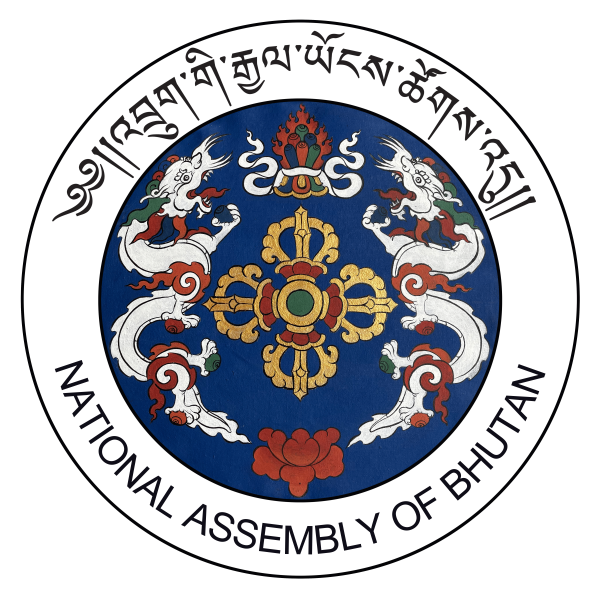
Action Taken Report on Taktse College of Language and Cultural Studies and students intake of only 20 % of class XII graduates by the Royal University of Bhutan
At the start of the session, the Speaker, on behalf of the National Assembly of Bhutan, offered Tashi Moenlam on the auspicious occasion of Her Majesty the Gyaltsuen’s Birth Anniversary, which is also observed as the World Environment Day in honour of Her Majesty’s contributions to environmental preservation. The House offered prayers for Her Majesty’s continued good health and long life.
The Minister for Education and Skills Development (MoESD) presented its Action Taken Report on the resolution regarding the Royal University of Bhutan’s limited intake of Class XII graduates which stood at 20 % and issue concerning College of Language and Cultural Studies (CLCS) at Taktse.
The Minister for Education and Skills Development informed the House that, following consultations with RUB and the CLCS, a reform plan to repurpose the College of Language and Cultural Studies has been developed. Key outcomes include a complete curriculum overhaul, positioning CLCS as a national centre for Bhutanese language and culture, producing bilingual and culturally grounded graduates, diversifying programmes to include GNH studies and global affairs, and strengthening institutional capacity. The Minister informed that the new academic programmes, including five undergraduate and three postgraduate courses, will begin in Autumn 2026.
While commending the plan, several Members expressed concerns over the limited student intake, currently capped at 35 and requested an update on students impacted by the 2022–23 education reforms, many of whom remain without academic pathways after the discontinuation of arts courses.
In response, the Minister for Home Affairs reaffirmed the importance of cultural preservation and expressed confidence that the new curriculum would be more relevant and skill-based. The Minister for Education and Skills Development acknowledged the concerns and clarified that the low intake was a temporary measure due to staffing limitations, and that future increases are under discussion with RUB.
On employability, the Minister said that the new curriculum is designed to produce graduates equipped with both cultural depth and contemporary skills. Addressing the plight of affected students, the Minister assured the House that the Ministry, in collaboration with local governments, is identifying students who wish to continue their studies, and offering them pathways through TVET and other skill-based programmes. She also highlighted the launch of the National Skilling Roadmap (NSR), which targets 60% student in-take into vocational education by 2034. The Minister also assured the House that the Ministry remains committed to improving access to higher education and employability for all Bhutanese youth. She noted that RUB’s colleges current 20% intake rate could be increased depending on demand and institutional readiness.
The House acknowledged the Ministry’s efforts, and emphasized the importance of ensuring inclusive access to higher and quality education. It further urged the Ministry to take into account all concerns and recommendations raised by the Members especially the number of students intake and expressed hopes for the successful implementation as reported. The House urged the Ministry of Education and Skills Development and the Royal University of Bhutan to hold a joint consultation to explore options for arts students affected by the 2022–23 reform. The House suggested considering opportunities for these students to continue their education in RUB colleges or, if not feasible, to provide financial support for them to study in private colleges.




